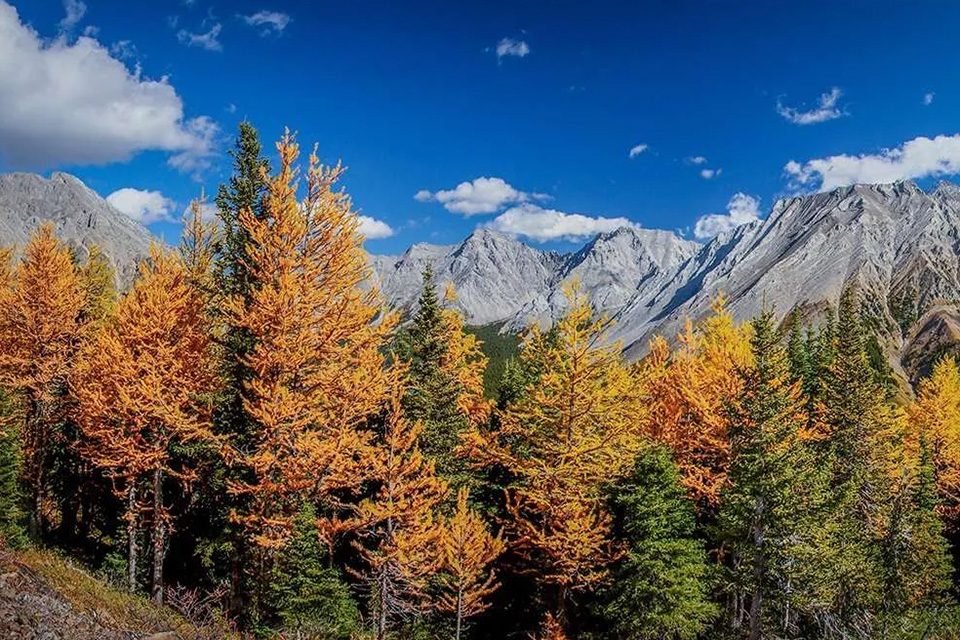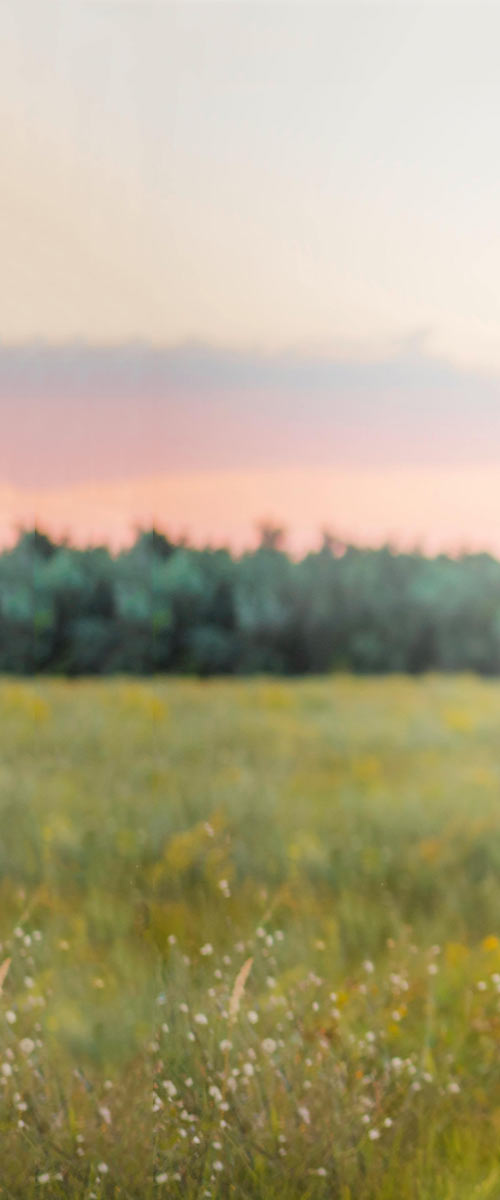Current Temperature
-13.0°C

This 10-km Trail Is Known As One Of The Best ‘Golden Larch Hikes’ In Alberta
Posted on 11 September 2023 by Britanny Burr
While Alberta may not be known for fall colours like other provinces like Ontario and British Columbia, we do have one pretty significant claim to fame: our golden larch trees. When cooler weather sinks in throughout the Canadian Rockies, the larch’s needles change colours from green to gold. Unlike other trees with needles, they will eventually tumble to the ground, just like autumn leaves. There are plenty of incredible trails in the Rockies that give you the opportunity to get up close and personal with the golden larches, but the tricky thing is that the time window is short. As we said, these needles are shed as the weather gets colder, so you’re going to want to hit the trails as soon as they turn gold.
There are tons of larch hikes to enjoy in the fall, some harder than others, but there’s one hike that is known as one of the best of the best when it comes to larch viewing. That hike? Pocaterra Ridge. While it isn’t the easiest hike out there, it’s worth the grind. Here’s everything you need to know.
Getting There
This 9.8 km hike is located near Kananaskis Improvement, Alberta. The challenging, point-to-point trail is breathtaking beyond belief, and we think you should probably see it for yourself. You’ll need a conservation Pass for this journey, which can be purchased daily or annually. You only need one pass per vehicle, so fill up that car.
Because this is a point-to-point hike, you’ll need to bring two vehicles. One car will be left near the Little Highwood Pass parking lot, and the other will be parked where you’ll begin your hike at the Ptarmigan Cirque/Highwood Meadows lot. Parking is limited, especially in larch season, so you should probably set those alarms for an early morning.
Phone service is spotty at best in this area, so save or print the trail map ahead of time, as well as the road map, to get your vehicles to where they need to go.
Once you’re at the parking lot and your pickup vehicle is in place, you can make a pit stop at the bathrooms and then be on your way.
The Hike Itself
Pocaterra Ridge is breathtaking, though it is pretty tough. The first part of the hike takes you to the first peak, which is also the most difficult approach with a lot of elevation gain. It’s a steep climb, but the views are mind-blowing the whole time.
It will take you a while to reach the ridge itself, but once you do, you’ll get 360-degree views of the valleys below and–of course–the larch trees. You’ll walk along the ridge before descending down from the first summit. You’ll descend a total of four summits along the way and see nothing but enchanting views the entire time. Not only will you get to see golden larches, but you’ll be directly next to them on many parts of the trail. Honestly, it’s one of the best hikes you’ll find in the area, though the trail is pretty rugged at parts, so keep those eyes open.
Preparing For Your Journey
The trail is well-worn and muddy, so be sure to bring really good footwear and hiking poles. You’ll also need bear spray, plenty of layers, a lunch, lots of water, and snacks. Don’t forget your first aid kit. When we say layers, we mean it. No matter how warm it is out, it gets really cold on the ridge because it’s extremely windy. You might even want some gloves and a hat.
It’s important to note that this is an undesignated route that is not maintained, so be sure to check on Alberta Parks advisories before heading out. Always do your research ahead of time, never feel bad about turning around if you’re not feeling up to it or conditions are poor, and be sure to leave no trace.
Britanny Burr is a freelance writer and a contributor to Great West Media. This story was written for the 2023 Hot Summer Guide advertising feature. It is not written by and does not necessarily reflect the views of the editorial staff.
Leave a Reply
You must be logged in to post a comment.



